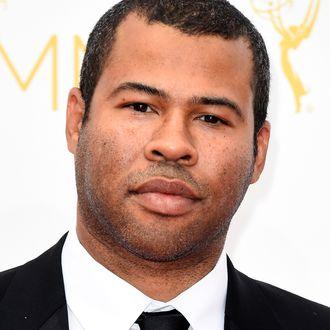In the dimly lit corridors of Hollywood, where the echoes of screams often fade into the predictable patterns of jump scares and recycled plots, a new voice emerged, reshaping the contours of the horror genre. Jordan Peele, once known for his comedic brilliance on television, has deftly transitioned from sketch comedy to the director’s chair, bringing with him a fresh and unsettling perspective on what it means to be truly terrified. With a keen eye for societal undercurrents and a masterful command of suspense, Peele has crafted narratives that not only haunt the mind but also provoke thought and conversation. As we delve into the world of this comedian-turned-director, we uncover how his unique vision has revolutionized horror, creating a new paradigm that challenges audiences to confront the monsters lurking both on screen and within themselves.
Crafting Chills with Comedy: Peeles Unique Approach to Horror
Jordan Peele’s films masterfully blend the eerie with the entertaining, crafting a genre that feels both familiar and refreshingly new. At the heart of his unique approach lies a deft use of comedy that amplifies the horror, creating a dissonance that keeps audiences on the edge of their seats. By leveraging his comedic roots, Peele introduces humor not as a relief but as a tool to intensify the suspense. This innovative technique is evident in his movies where laughter often leads to tension, blurring the lines between safety and danger.
- Subverting Expectations: Peele uses humor to set up scenarios that take unexpected turns, leading viewers into unsettling territory.
- Relatable Characters: His comedic background helps in crafting characters that are authentic and approachable, making their experiences more impactful.
- Social Commentary: Humor acts as a vehicle for deeper messages, allowing Peele to address societal issues without losing the audience’s engagement.
This interplay of comedy and horror creates a unique narrative rhythm, one that challenges traditional genre boundaries and offers a fresh perspective on fear.

From Sketches to Screams: The Evolution of Jordan Peeles Vision
Jordan Peele’s journey from comedy sketches to redefining horror cinema is a testament to his visionary prowess. Peele, initially known for his comedic brilliance on “Key & Peele,” stunned audiences with his directorial debut, ”Get Out.” This film not only garnered critical acclaim but also opened a new avenue for horror, blending sharp social commentary with traditional scares. Peele’s unique approach is characterized by his ability to tap into societal fears and anxieties, transforming them into narratives that are both entertaining and thought-provoking.
His subsequent films, ”Us” and ”Nope,” further solidified his status as a master of modern horror. Key elements of Peele’s vision include:
- Innovative Storytelling: Peele crafts stories that challenge conventional horror tropes, offering fresh perspectives and unexpected twists.
- Social Commentary: His films often reflect societal issues, making audiences reflect on real-world problems through the lens of horror.
- Atmospheric Tension: Peele excels at building suspense and creating immersive environments that keep viewers on the edge of their seats.
His ability to intertwine humor with horror elements sets him apart, creating a new narrative style that resonates with a diverse audience.

Unpacking the Layers: Social Commentary in Peeles Horror Films
Jordan Peele’s horror films are renowned not only for their spine-chilling suspense but also for their profound social commentary. Peele deftly weaves layers of social critique into his narratives, compelling audiences to confront unsettling truths about society. His films, like “Get Out” and “Us,” delve into themes of race, identity, and privilege, challenging viewers to reflect on the reality of systemic oppression and the duality of human nature.
- Get Out: This film uses horror to explore racial tensions and the commodification of Black bodies in a seemingly post-racial society.
- Us: Peele examines the concept of ‘the other’ and the societal underbelly that people choose to ignore, presenting a mirror to the audience’s own fears and prejudices.
Through his work, Peele has redefined the horror genre, transforming it into a vehicle for critical dialogue. By integrating elements of satire and allegory, he ensures that his films resonate on multiple levels, making them not just stories of terror, but also powerful reflections on contemporary issues.

Essential Viewing: A Guide to Jordan Peeles Cinematic Masterpieces
Jordan Peele’s transition from comedy to horror has left an indelible mark on modern cinema. His films are not just thrill rides but profound social commentaries wrapped in suspenseful narratives. Peele’s storytelling prowess is exemplified through his innovative approach to horror, where he masterfully blends psychological depth with elements of the supernatural. His unique voice resonates with audiences who appreciate a deeper layer of meaning within the genre.
- Get Out (2017): A groundbreaking debut that explores racial tensions through the lens of horror, challenging viewers to confront uncomfortable truths.
- Us (2019): A chilling exploration of identity and duality, this film delves into the terrifying notion of our darkest selves lurking beneath the surface.
- Nope (2022): A bold take on the classic alien encounter narrative, combining cosmic horror with a critique of spectacle and exploitation in modern media.
These films are essential viewing for anyone interested in the evolution of horror cinema, where Peele continues to redefine the genre with his distinct blend of wit, terror, and social insight.









